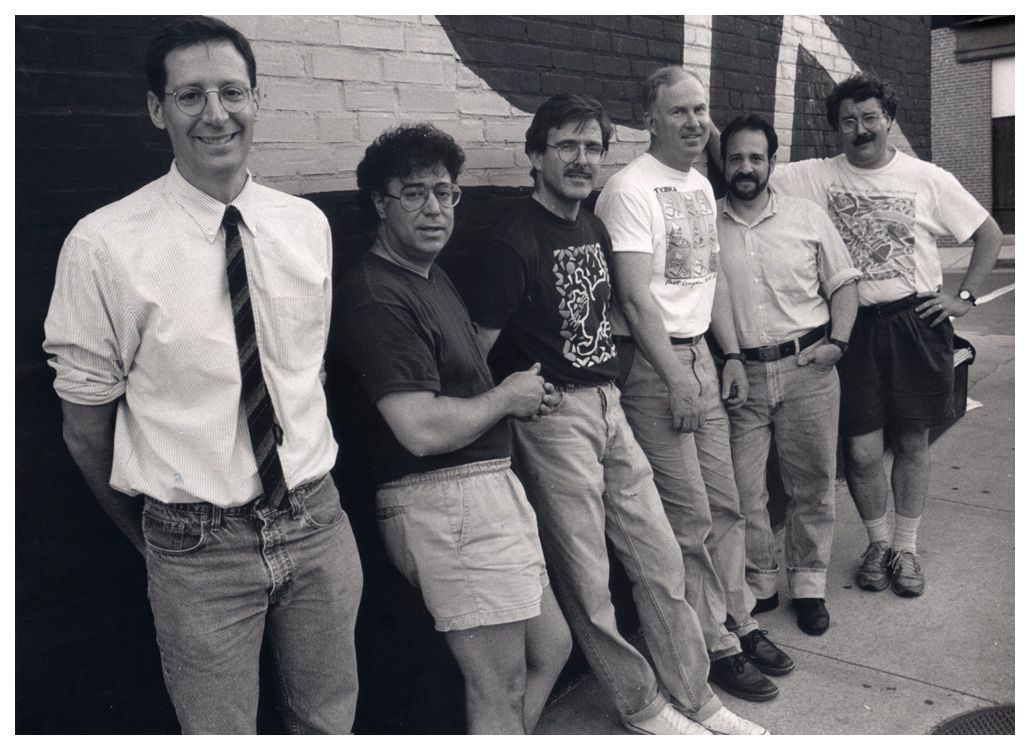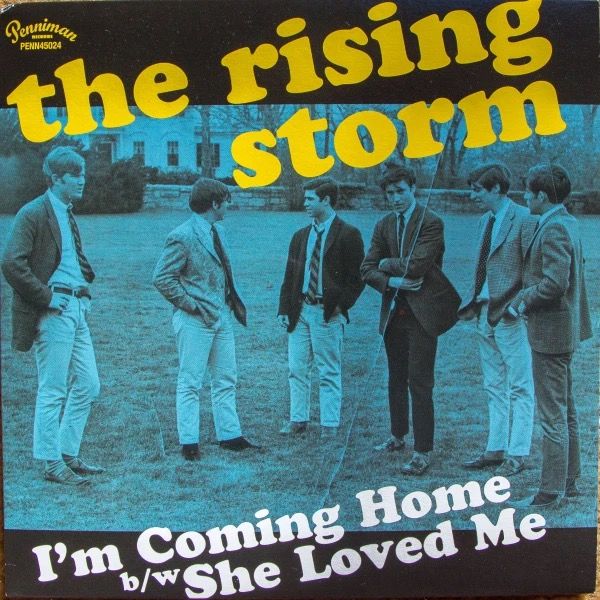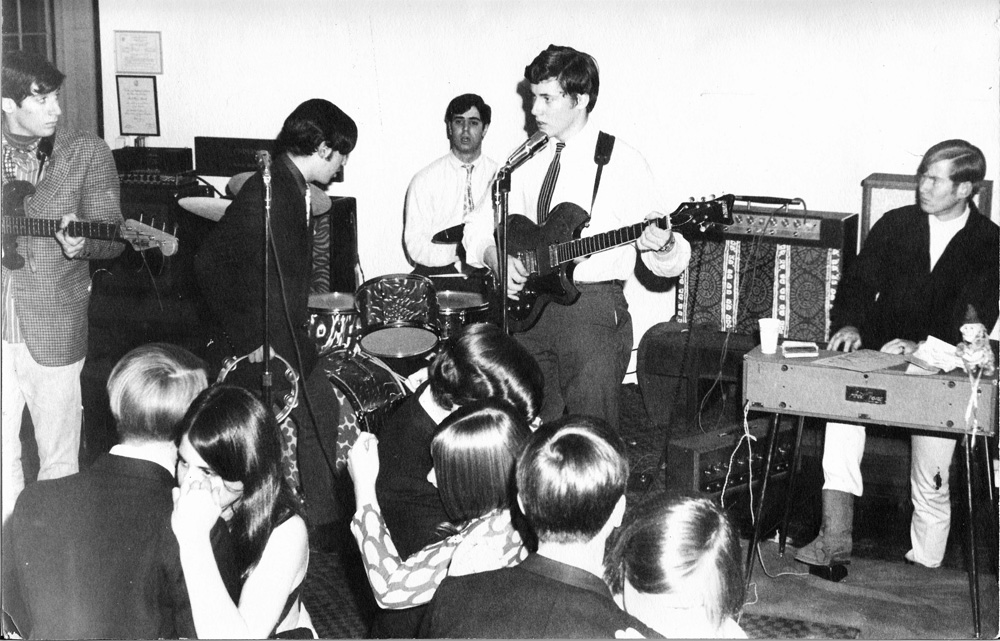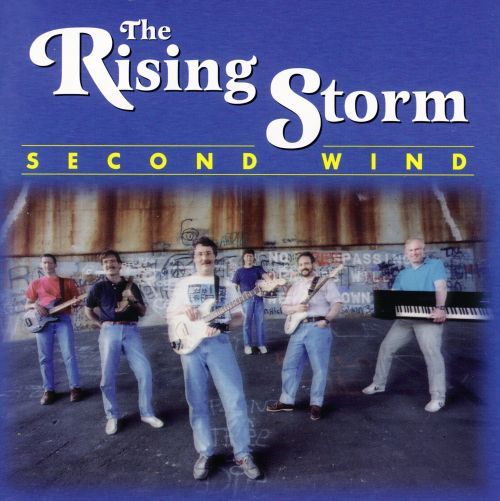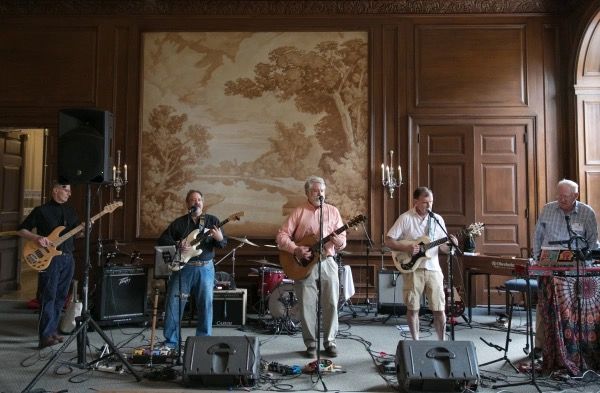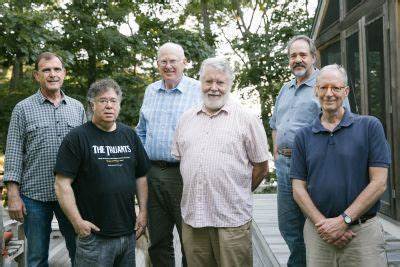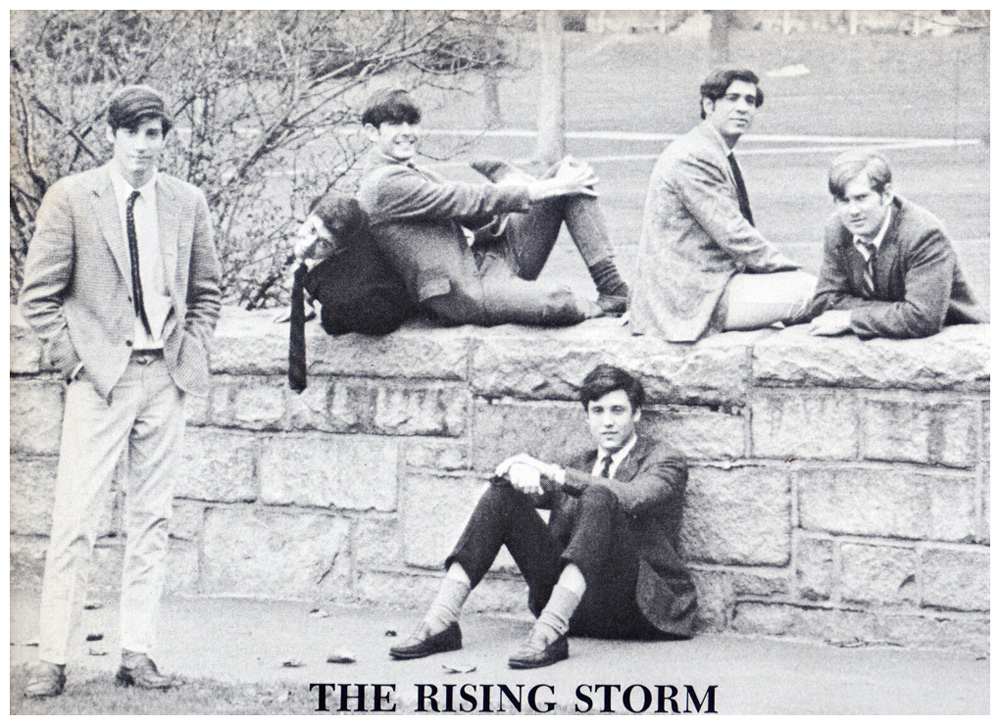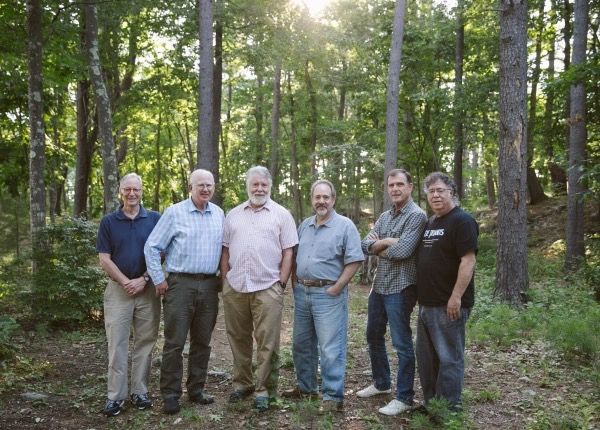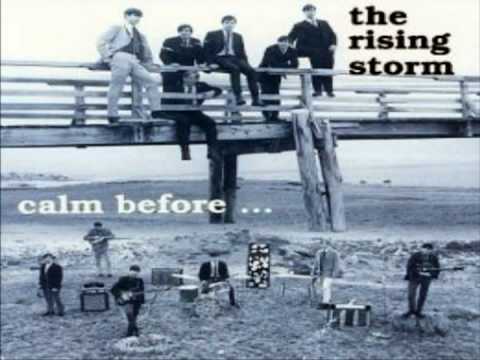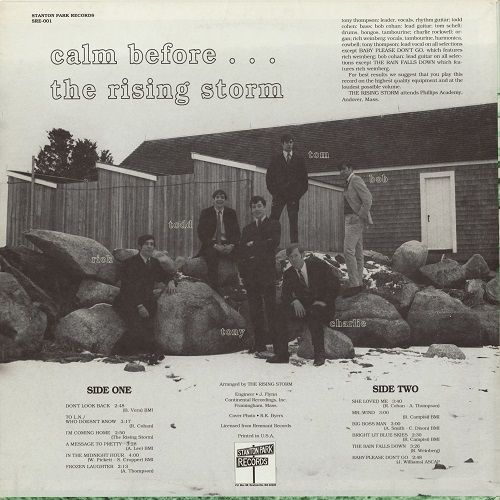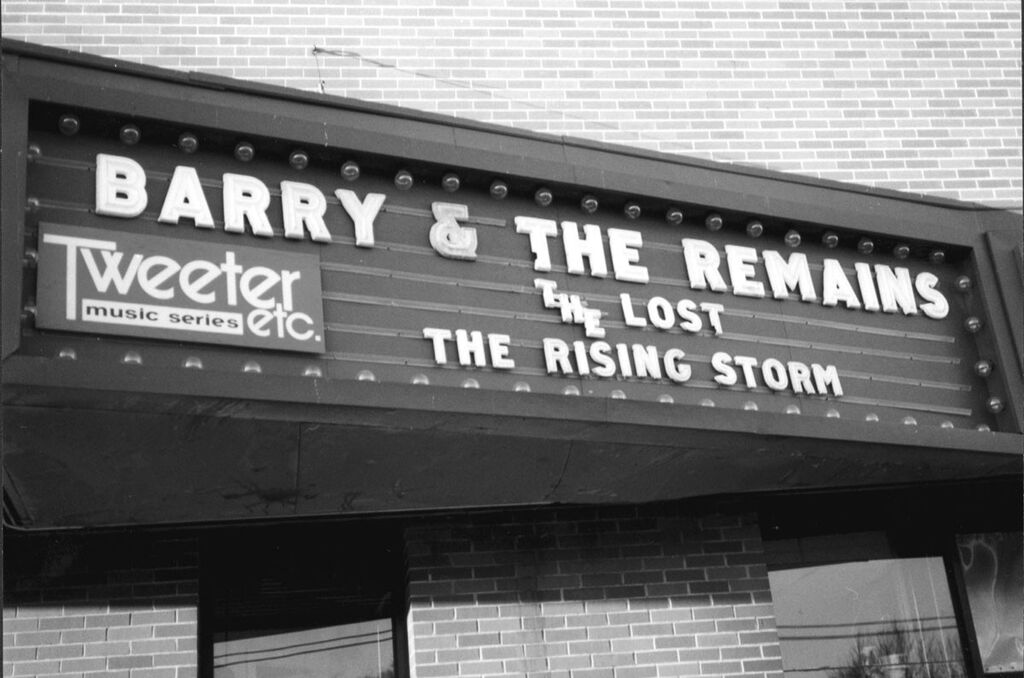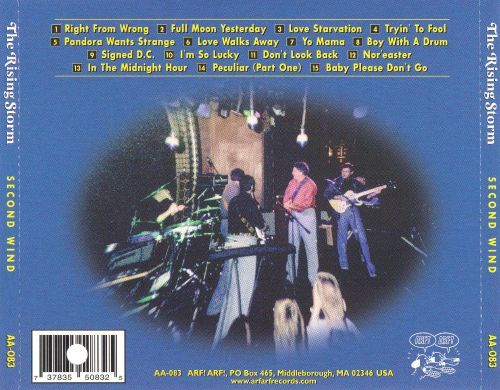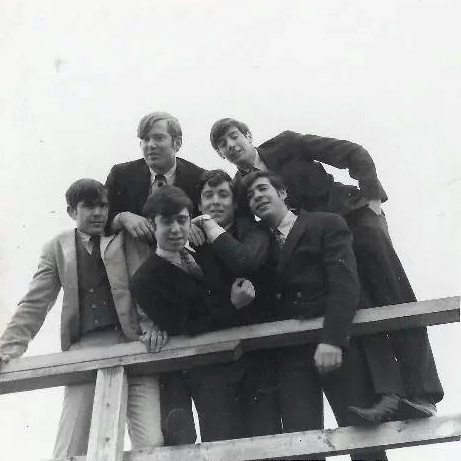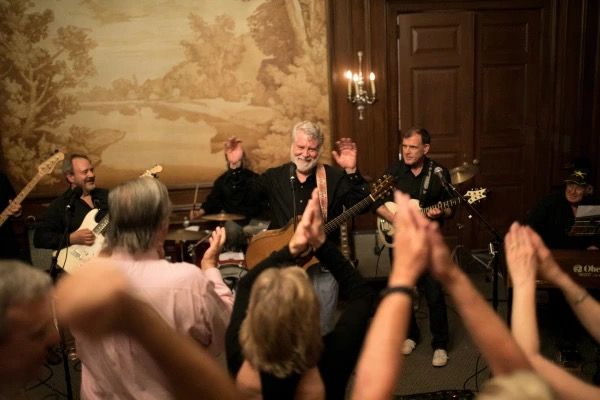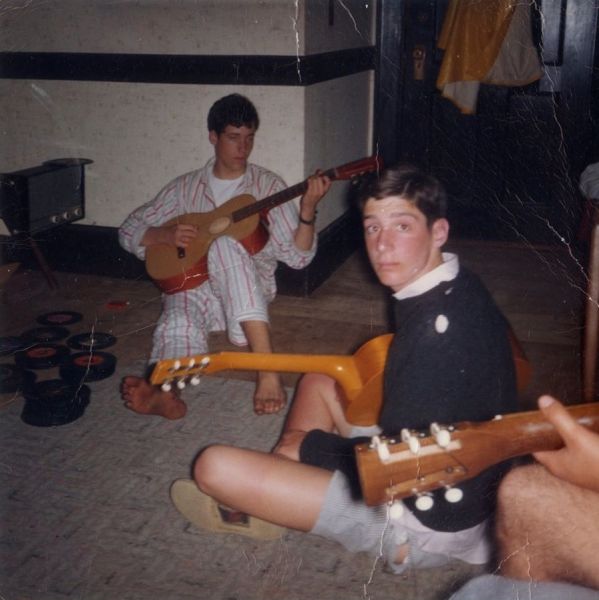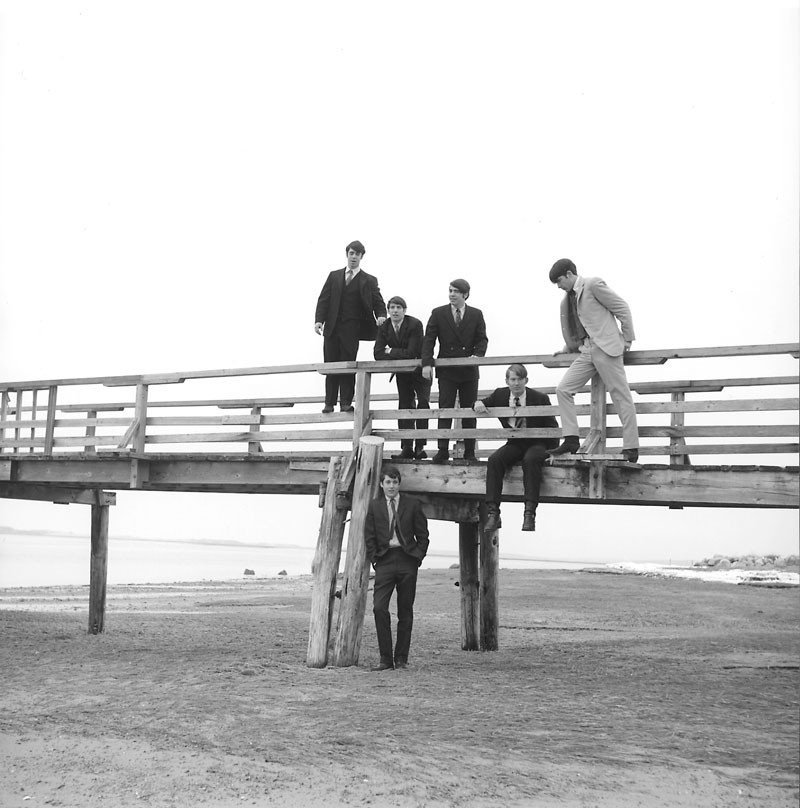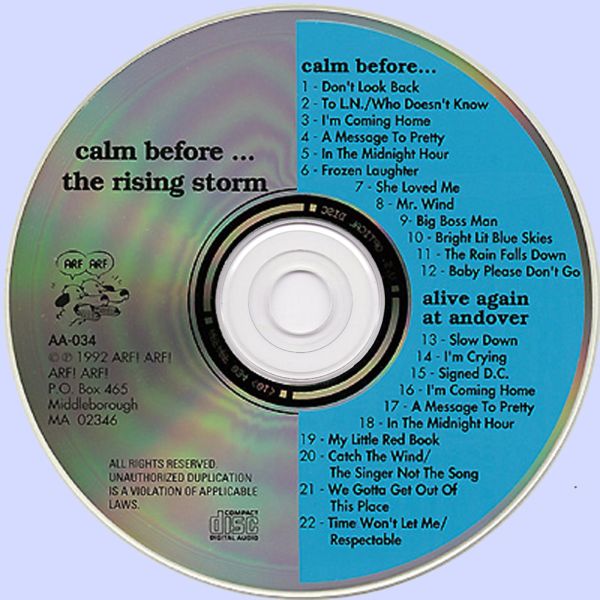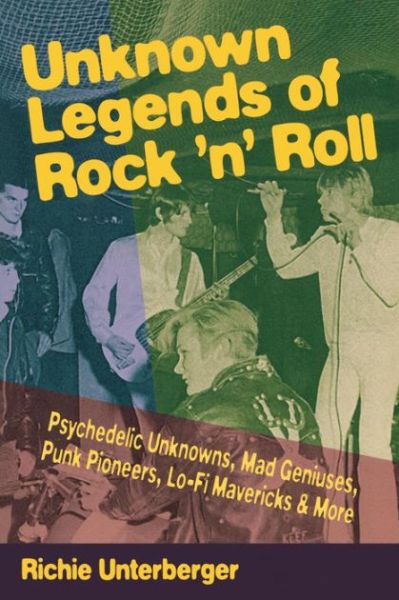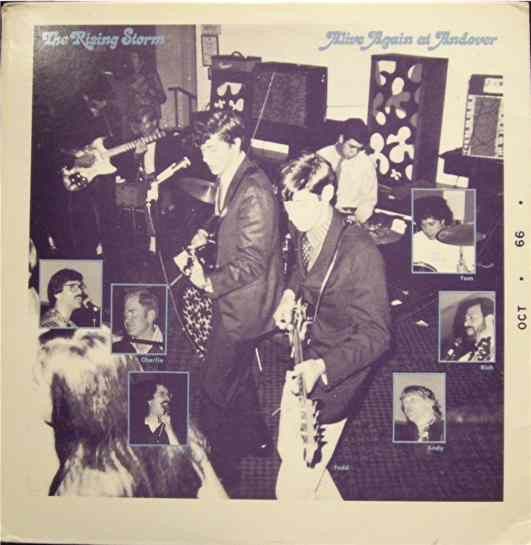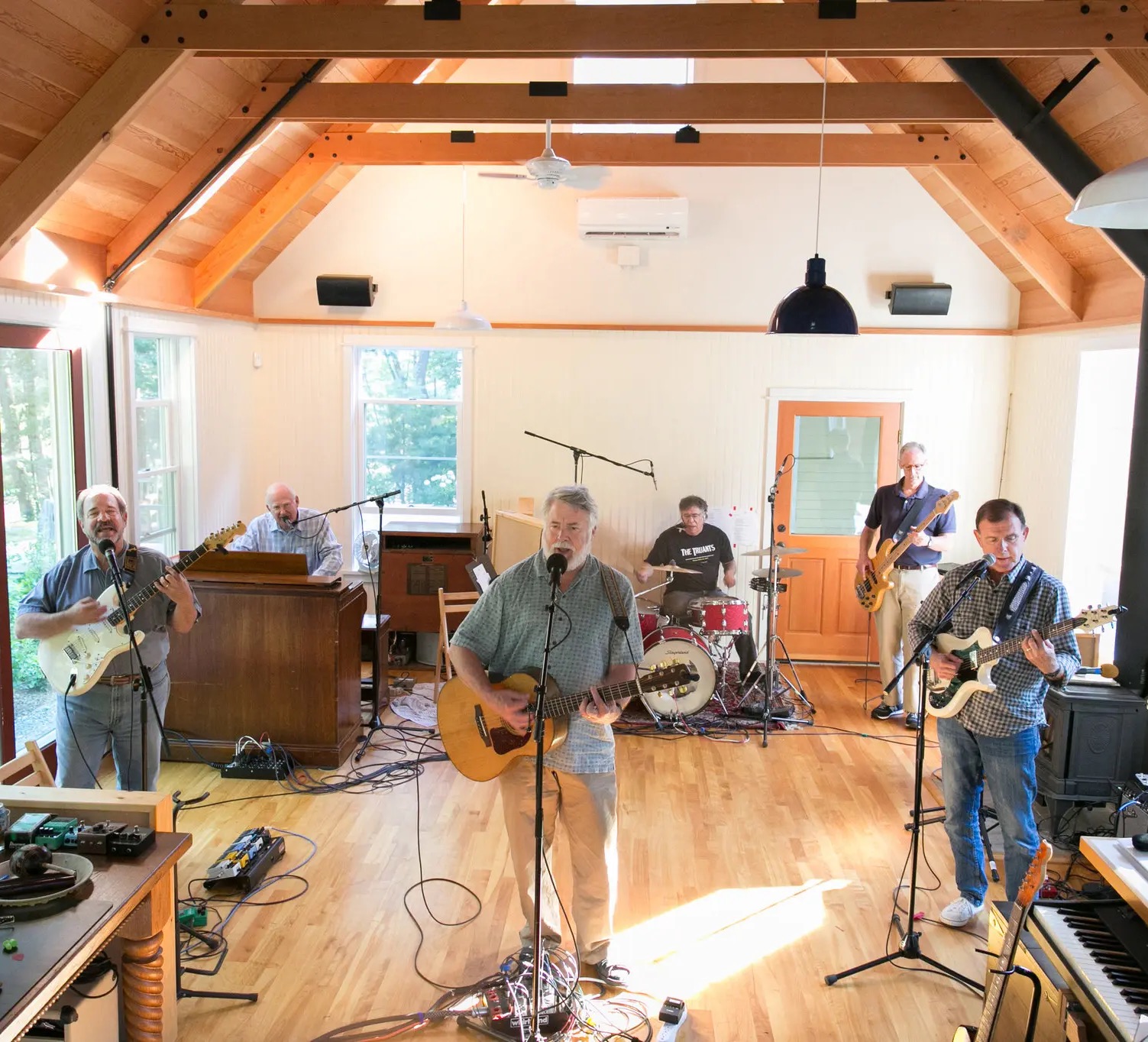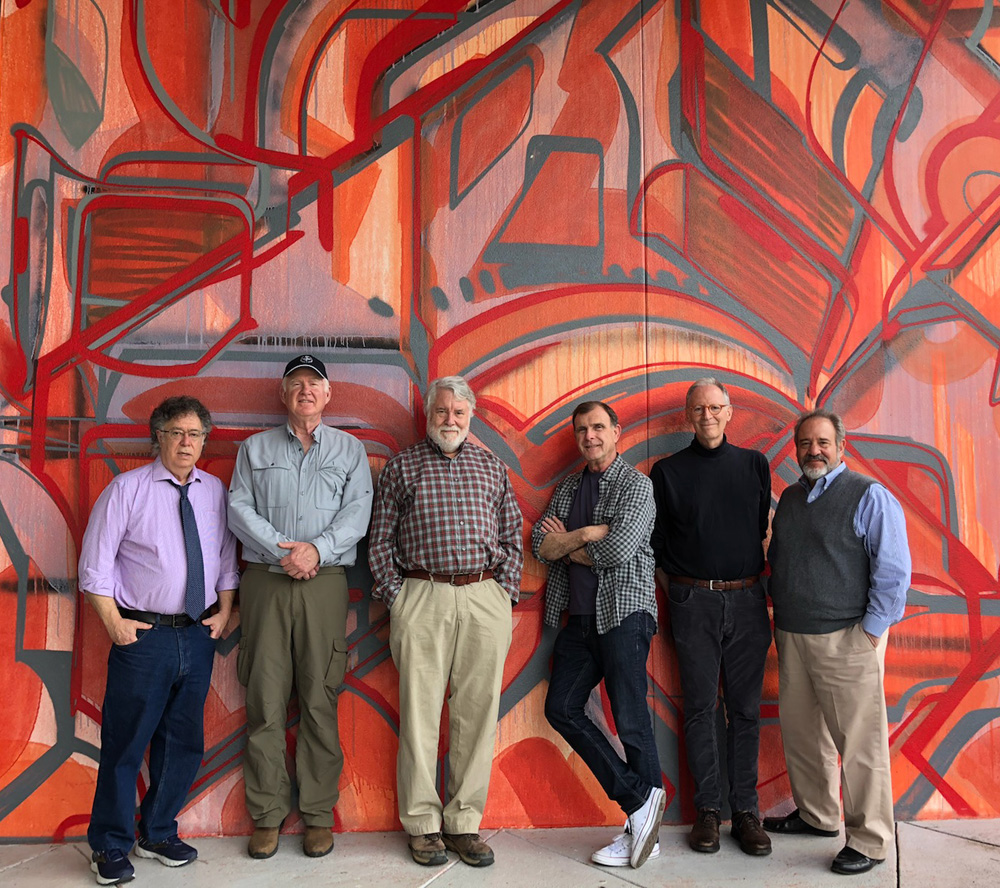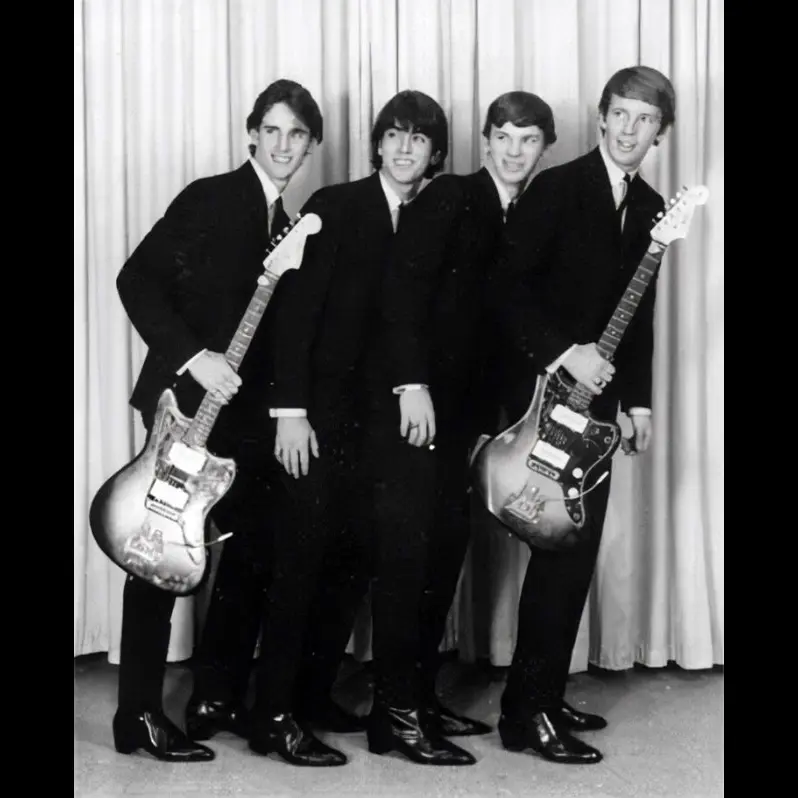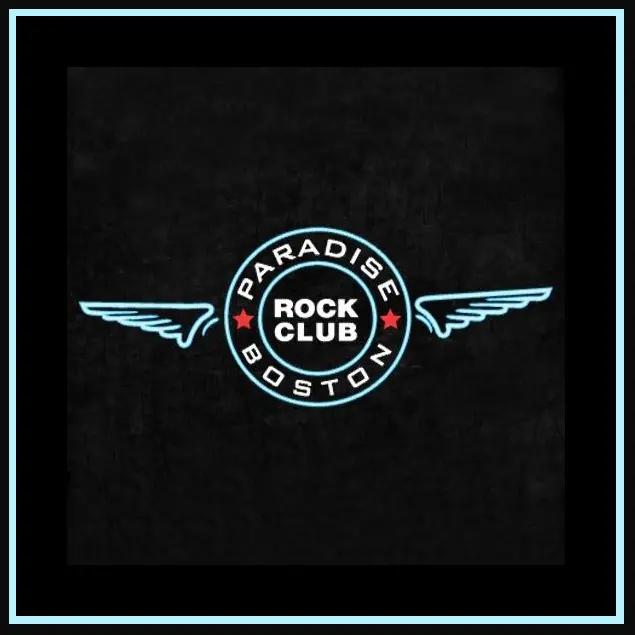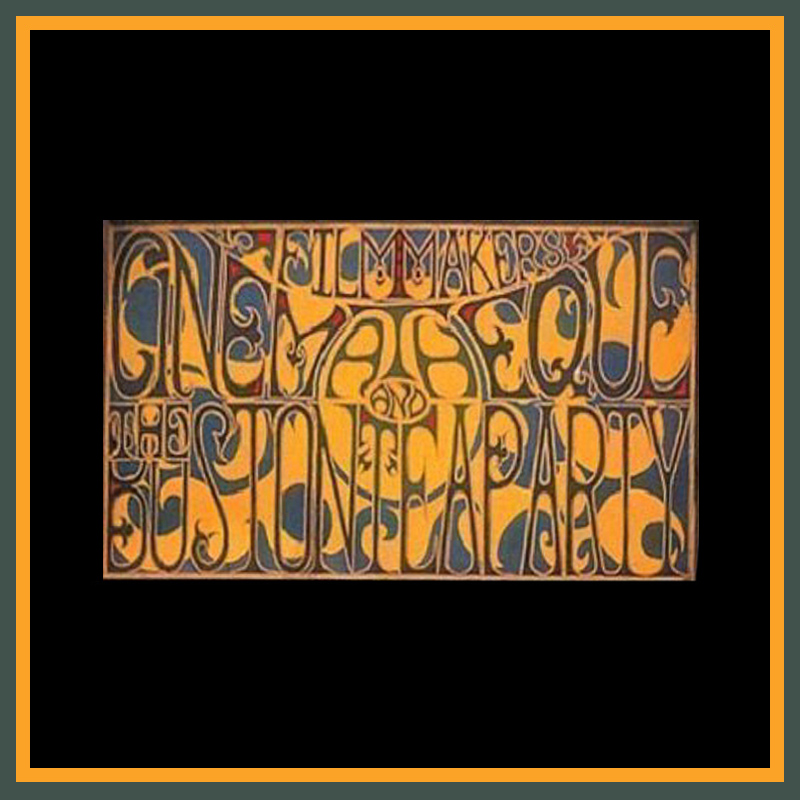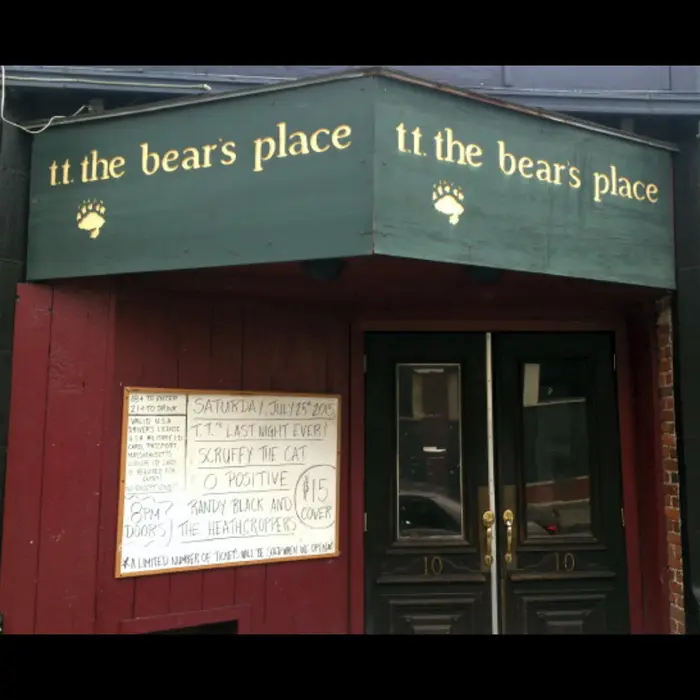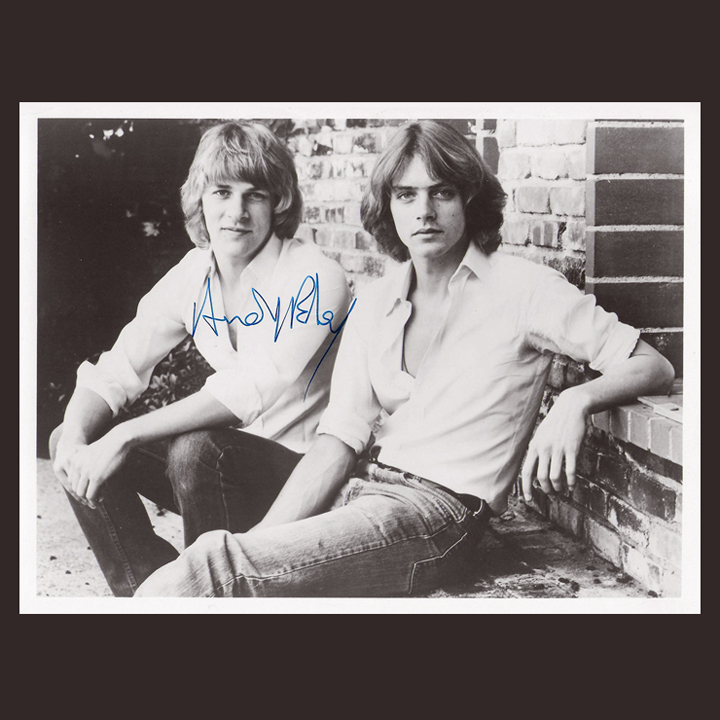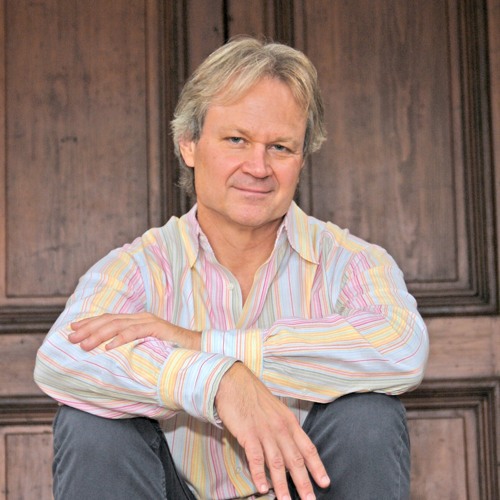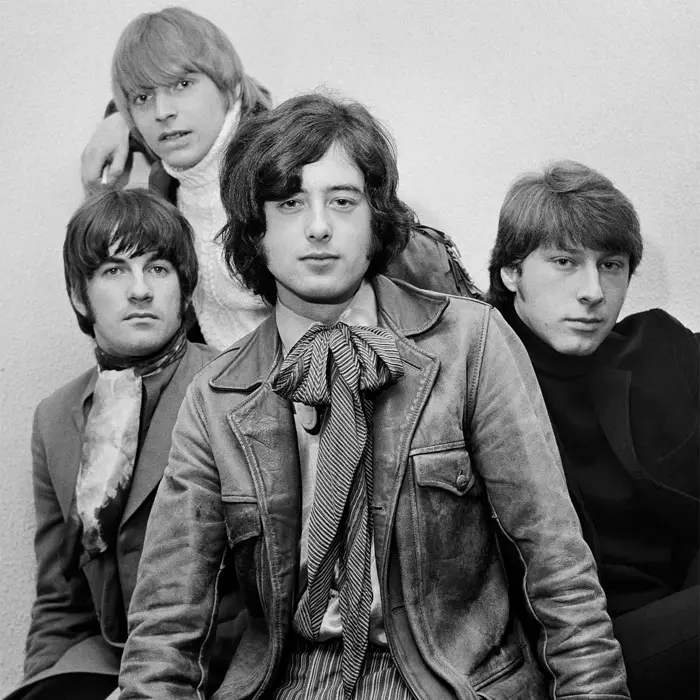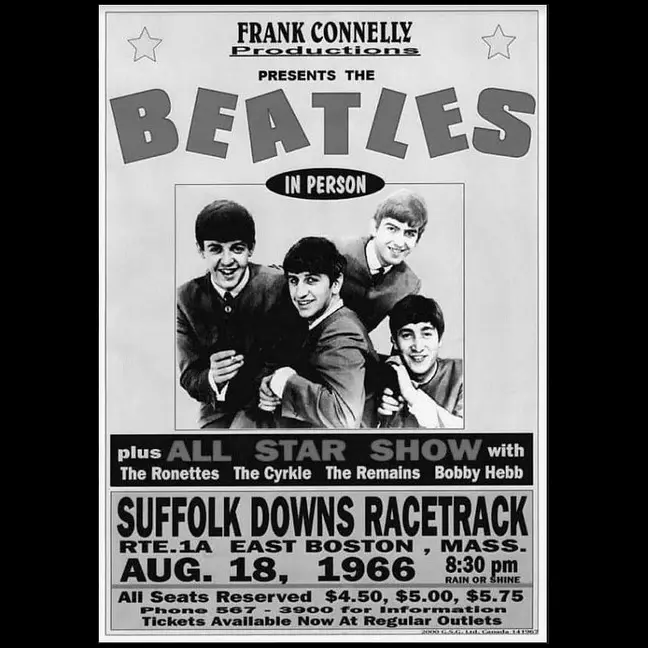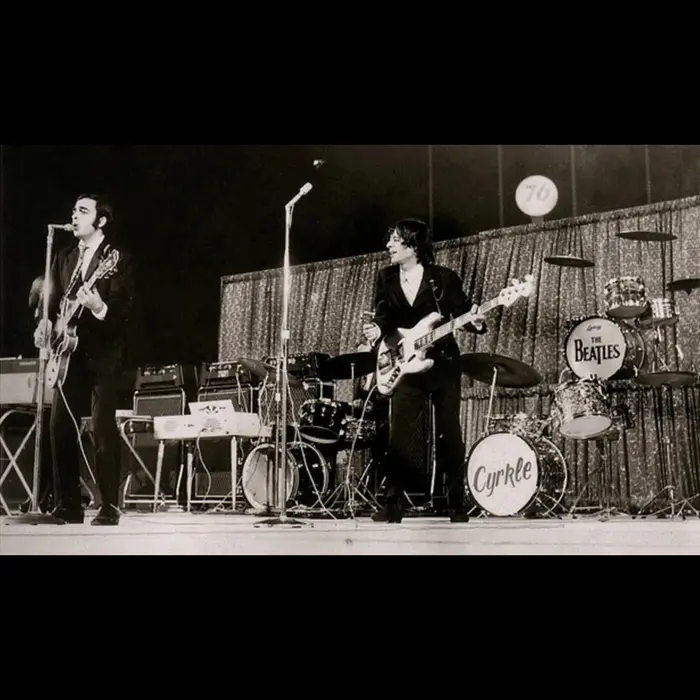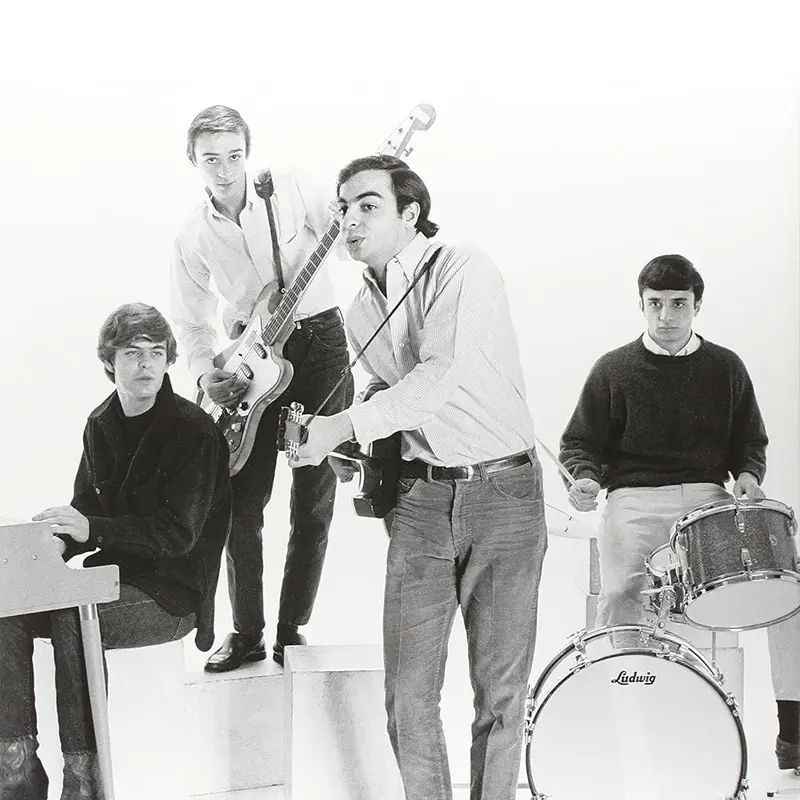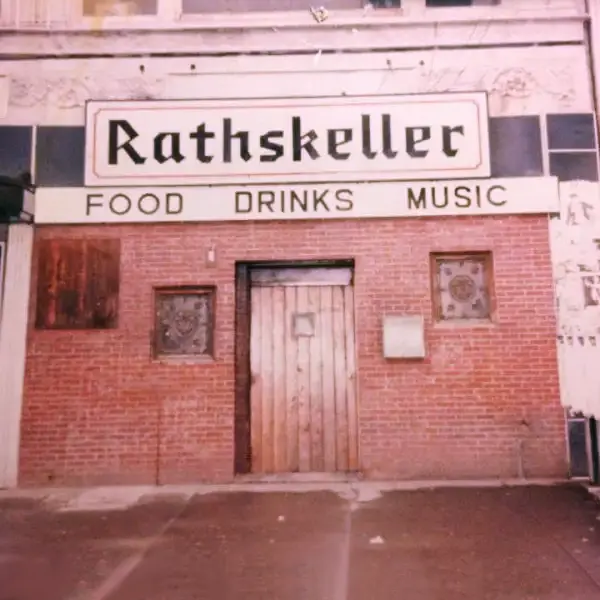The Rising Storm
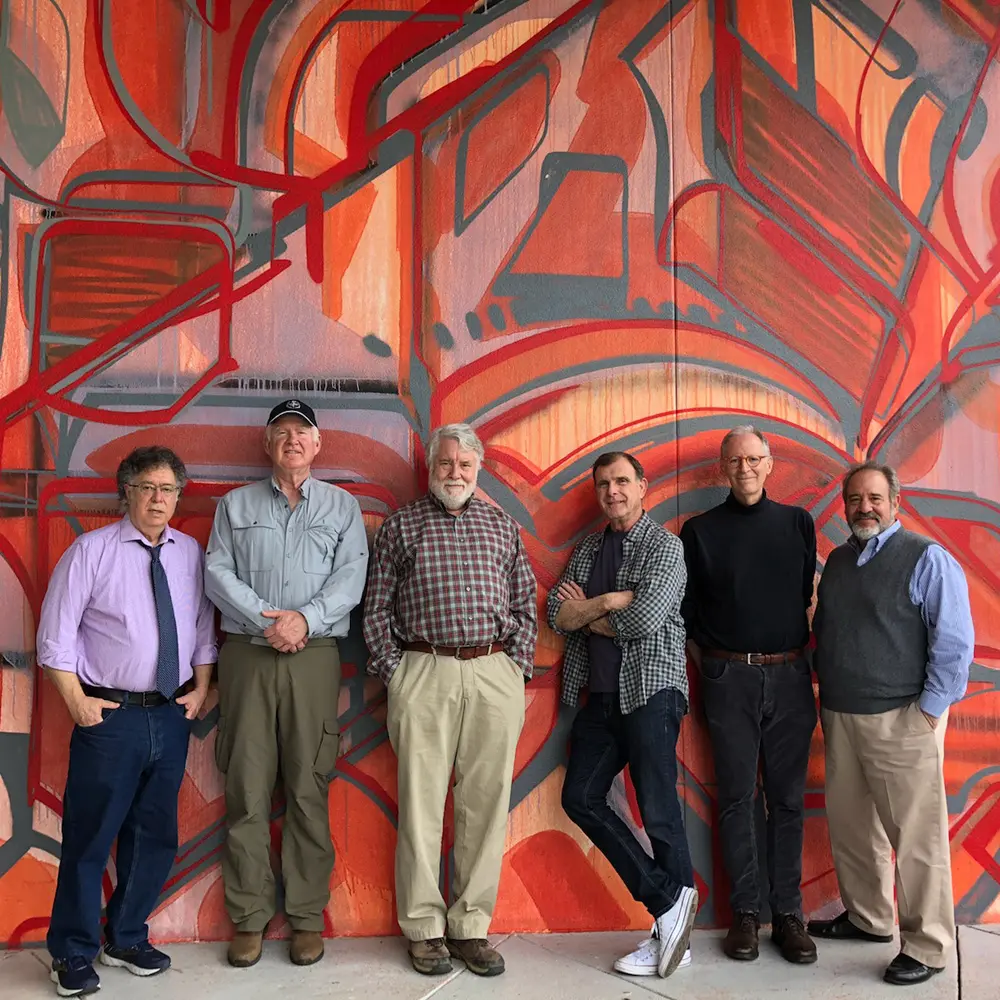
Critic Mark Kemp has called mid-‘60s garage rockers The Remains “America’s greatest lost band,” which is a perfectly fair classification in that the enormously influential group was “found” in a big way when they toured with The Beatles in 1966 but “lost” that fame almost immediately afterwards, substituting it with an incredibly intense, international cult following.
On the other hand, calling The Rising Storm “lost” would be very misleading since they were only “found” in a very small region by a very small circle of very devoted fans and – very, very significantly – vintage record collectors, so a cult following is all they’ve ever known. The perfect description of the group, which they’ve posted proudly at the very top of their official website, is Boston University graduate Peter Carlson’s from a piece in The Washington Post: “the most famous utterly obscure rock band in America.”
Just how such obscurity came about is a fascinating discussion topic, especially since rock historian Richie Unterberger has cited The Rising Storm’s debut LP, Calm Before, as “one of the rarest and most respected garage-band albums” and he devoted an entire chapter to the group in his sweeping review of unsung rock visionaries from the 1950s through the ‘90s, Unknown Legends of Rock ‘n’ Roll (Backbeat Books, 1998). What’s even more interesting – and what separates The Rising Storm from the hundreds of other garage bands formed after The Beatles’ appearance on The Ed Sullivan Show in February 1964 – is the reason why they reunited 14 years after disbanding in 1967 and have remained active to this day with exactly the same lineup as 58 years ago.
Formation, Name, Influence, Repertoire
The band was formed in 1965 at Phillips Academy in Andover, Massachusetts, by six first-year preppies living in the campus’ Bishop House South who’d played in the Bishop Buddies Association Jug Band: lead singer and rhythm guitarist Tony Thompson, lead guitarist Bob Cohan, multi-instrumentalist Richard Weinberg, bassist Todd Cohen, keyboardist Charlie Rockwell and drummer Tom Scheft. “We played all kinds of instruments,” Cohen recalled in 2018. “A washtub bass, a big jug filled with water, harmonicas, mouth harps, a guitar. I think Tom drummed on a guitar case. It was just that kind of a band.”
After playing a concert with that group at the school’s George Washington Hall – each of The Rising Storm members’ first on-stage experience – the six were so exhilarated that they formed the rock group The Remnants, taken from a Bible-class textbook called Remnants of Israel because four of the six members were Jewish. In 1967, their senior year, they renamed themselves The Rising Storm, based on a section in their history-class syllabus, deciding that “The Remnants” sounded too similar to “The Remains,” whom they “idolized,” Weinberg’s said.
While at Andover, the boys often snuck into Graves Hall at night to practice, since it was reserved for classical musicians and “rock and roll was not looked upon favorably,” according to keyboardist Rockwell. Like their contemporaries, the band was profoundly influenced by British Invasion groups and played covers of blues and R&B classics, plus songs by The Remains and The Rockin’ Ramrods – at on-campus dances and mixers.
What distinguished The Rising Storm from the pack was their evocative originals such as “Frozen Laughter,” ” The Rain Falls Down” and “To L.N./Who Doesn’t Know,” which critic Marc Deming lauded as “moody, atmospheric numbers that walk a graceful line between folk-rock and psychedelia.”
Calm Before, Disbanding
In 1967, with graduation approaching and every band member seeing that as the end of The Rising Storm, they pooled their cash to record the 12-song LP Calm Before for posterity – not popularity or profit – and pressed 500 copies. It includes originals and inventive covers, the first track being their rendition of the Billy Vera-penned “Don’t Look Back” from The Remains’ self-titled debut album, and they sold roughly half, gave away the rest, graduated and went their separate ways.
Until 1981. In a twist of fate that stupefied the group, Calm Before had become such a piping-hot collectors’ item that mint-condition copies were selling for $400 ($1,300 in 2023) and in March that year The Boston Phoenix published a story by Howard Litwak about the astonishing pricing trend. “What makes Calm Before particularly interesting is not its music (which I’m told is pretty good),” he wrote, “but its current market value.”
At the time, Thompson was a DC-based attorney, Cohan was a Boston-based attorney, Weinberg was a Chicago-based gastroenterologist, Rockwell was a ski instructor in Vermont, Cohen was a North Carolina-based journalist and Scheft was a North Carolina-based English professor.
Reunions, Alive Again at Andover, Second Wind, NYT profile
Five months after hearing the news, in August 1981, they reunited for a gig (with Andy Paley sitting in for bassist Cohen) at The Rathskeller in Boston, where The Remains had been a regular act in the ‘60s when it was a bar/restaurant called TJ’s. Several weeks later, they played another show at Faneuil Hall Marketplace and in 1982, with Cohen back on bass, the band performed at their 15th class reunion, which they recorded and Arf! Arf! Records released in 1983 as Alive Again at Andover.
In the 1990s, The Rising Storm regrouped several more times, including in 1992 at their 25th class reunion and at T.T. the Bear’s Place in Cambridge and in March 1999 at Boston’s Paradise Rock Club, opening for The Remains in that band’s first Boston show since appearing at The Boston Tea Party exactly 30 years before, in March 1969. “That gave us bragging rights to say we opened for the band that opened for The Beatles,” guitarist Cohan said in 2023. “Now that is a big deal, to me anyway.” Later in 1999, they recorded their second studio album, Second Wind, a 15-track LP featuring 11 originals.
In the 2000s, after appearing at their 35th class reunion in 2002, The Rising Storm went global, headlining at the Dirty Water Club in London and performing in the slot before The Yardbirds at the Primitive Festival in Rotterdam in 2007, with composer-pianist Erik Lindgren sitting in on bass. In 2014, with Cohen back on bass, they played at MIT-based WMBR’s Pipeline 25 Festival and in 2017 they performed at – where else? – their 50th class reunion. That same year, The New York Times ran a feature on the band, “A Cult Following? My Dad’s Garage-Rock Band Nailed It,” written by Finn Cohen, bassist Cohen’ son.
Calm Before remaster, Documentary, 55th class reunion
In 2016, according to the band’s website, an original pressing of Calm Before – which Record Collector magazine described as “enigmatic, pleasingly wonky, and romantic in a flushed, teenage sort of way” – sold for $6,500.
In 2018, 52 years after the album was recorded, Sundazed Records issued a re-mastered edition on vinyl and CD. In August that year, a 30-minute film about the group’s history, calm before…the rising storm, won first place at the Jukebox International Film Festival, with critic Unterberger calling it one of the year’s top-10 rock documentaries.
In June 2022, the septuagenarian sextet performed in a town and for an event that will come as no surprise: In Andover at a dance party celebrating their own 55th class reunion and those of other classes from both Phillips Academy and Abbot Academy, the latter having been an Andover-based all-female prep school from 1828 to 1973, when it merged with Phillips.
“More than the sum of its parts”
Speaking in 2018 to The Phillipian, Andover’s student newspaper, guitarist Cohan said he’s been amazed at how important the band’s Calm Before LP is for some people on a profoundly personal level. “I didn’t really take it seriously when I found out how successful the record was,” he said. “Then, we were playing at a club called Maxwell’s in Hoboken, New Jersey, and some kid came up to Tony [Thompson] and started telling him how his song had saved his life after he’d broken up with his girlfriend.”
“That’s when I began to realize that this record was more than the sum of its parts,” he explained, “and that we’d done something special here.”
(by D.S. Monahan)

